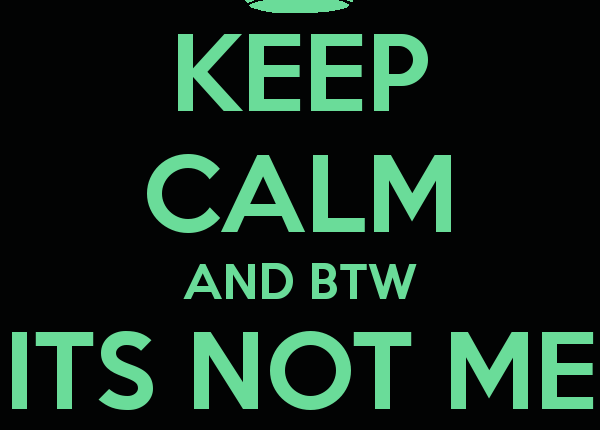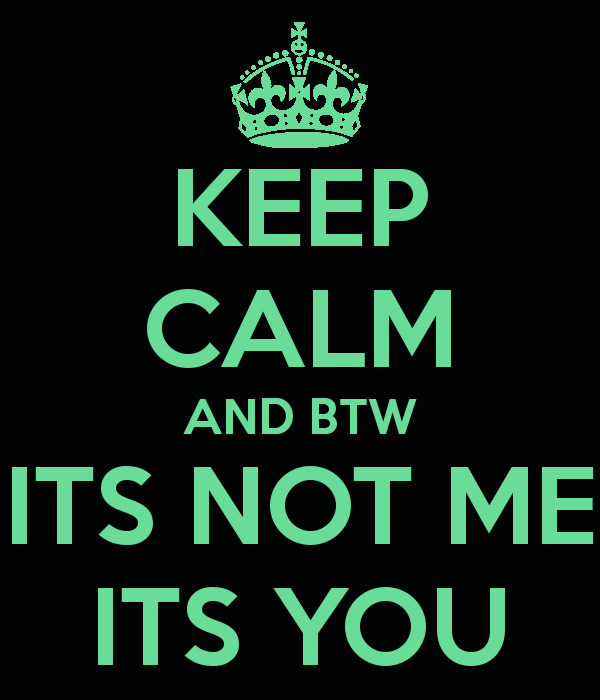SHELF LIFE: It’s Not Me, It’s You!

A few weeks ago, there was quite a lot of fuss made about Louis CK’s show Louie in which Louie comes precariously close to molesting a friend when she rebuffs his advances. It is an uncomfortable scene which made me squirm. Yes, there were mitigating circumstances for why the character did what he did but at the same time, it didn’t matter—the woman said no so the character crossed a line. That’s the genius and the problem with a show like Louie, it does deal with a lot of dark stuff and makes us look at it. Personally, I accept that a story will result in an emotional reaction from me. Sometimes good. Sometimes not. That’s the point of a story—especially a well written one.
The weird thing was the reaction to the episode. Quite a few people got het up by the scene. Naturally, someone people were made just as uncomfortable as me but somehow made associations with the show, the character and the actor. If Louis CK wrote the scene, acted in the scene, therefore he must think and behave that way. I can see how lines get blurred when you appear in something you wrote. However, the show isn’t a reenactment of Louis CK’s life. It’s a version. An alternate reality. A space where the what-if game is played. The clue might be in the show’s subtle title—Louie—when Louis CK spells his name Louis and the character spells his Louie. It’s a detail thing. J
The lines weren’t just blurred between Louis and his character but between Louis and the viewer. Critics brought their own baggage to the argument and projected it on the shows to create a different interpretation. I read one review written by a guy who admitted he forced himself on a woman years earlier, was repulsed by his actions and was repulsed by the TV episode and Louis CK’s endorsement of violence towards women. Wow, project much?
This kind of projection happens a lot. I’ve said before that I lose ownership of my stories the second they hit the bookshelf. As much as I have a vision for a story or book that I expect everyone to see the same way, it won’t happen because we all have different experiences and world views. My idea of poverty, marriage, injustice and anything else you care to name will be different from everybody else’s because we’ve all lived different lives. Even my interpretation of the color blue will be different to yours. It’ll be similar but it will be different. It’s not wrong. It’s just the way it is.
I’m always interested in the reactions to my books and stories because it goes places I didn’t expect or indeed write. Invariably someone will tell me about something that didn’t happen in the book. Readers told me about events in both WE ALL FALL DOWN and TERMINATED that didn’t happen. In each case, they were elaborations of particular scenes. A woman once demanded that I apologize for the infidelity in ACCIDENTS WAITING TO HAPPEN. It was so objectionable to her that a book feature and celebrate a protagonist that cheated on his wife. Now there is infidelity in ACCIDENTS. It’s occurs before the story begins and it’s the thing that essentially causes havoc for the protagonist throughout the book. The same woman wanted to know that how many times I’d cheated on my wife. She used the logic of if I wrote it then I must have done it. At the end of this encounter, I did wonder if this woman was a victim of infidelity herself. The ante got upped when someone wrote to my mother-in-law to tell her I was cheating on my wife because it was all mapped out in one of the stories in WORKING STIFFS.
This is the tricky thing when it comes to fiction. People assume if you write about a topic or have a character act a certain way therefore as the writer you must do those things in real life. In some things, yes. In most things, no. Personally, I’m exploring a thought, an idea, a concept or a scenario that has caught my attention and I wonder what will happen if that issue was played out. Just because a writer writes about rape, it doesn’t mean he’s a rapist. Stories are just that—stories. They aren’t manifestos or lifestyle endorsements—or at least they shouldn’t be. So when you read something and you start judging the writer for their characters’ beliefs and actions, well, I’m sorry, it’s not me, it’s you. J



